
Yuri Vladimirovich Andropov was a Soviet politician who was the sixth leader of the Soviet Union and the fourth General Secretary of the Communist Party of the Soviet Union. After Leonid Brezhnev's 18-year rule, Andropov served in the post from 1982 until his death in 1984.
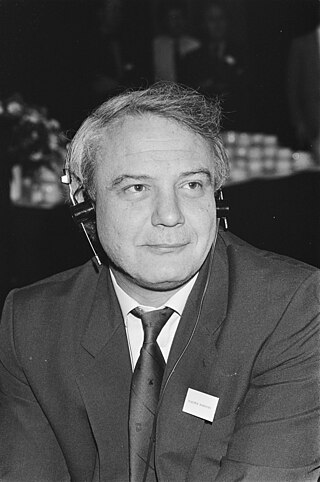
Vladimir Konstantinovich Bukovsky was a Russian-born British human rights activist and writer. From the late 1950s to the mid-1970s, he was a prominent figure in the Soviet dissident movement, well known at home and abroad. He spent a total of twelve years in the psychiatric prison-hospitals, labour camps, and prisons of the Soviet Union during Brezhnev rule.
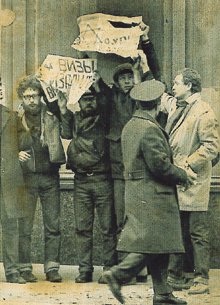
Refusenik was an unofficial term for individuals—typically, but not exclusively, Soviet Jews—who were denied permission to emigrate, primarily to Israel, by the authorities of the Soviet Union and other countries of the Soviet Bloc. The term refusenik is derived from the "refusal" handed down to a prospective emigrant from the Soviet authorities.

Yuri Fyodorovich Orlov was a particle accelerator physicist, human rights activist, Soviet dissident, founder of the Moscow Helsinki Group, a founding member of the Soviet Amnesty International group,. He was declared a prisoner of conscience while serving nine years in prison and internal exile for monitoring the Helsinki human rights accords, he was declared a prisoner of conscience by Amnesty International as a founder of the human rights movement in the Soviet Union. Following his release from exile, Orlov was allowed to emigrate to the U.S. and became a professor of physics at Cornell University.
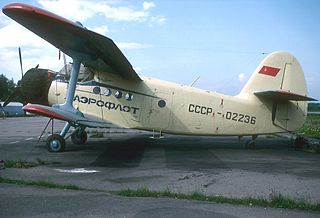
The Dymshits–Kuznetsov aircraft hijacking affair, also known as The First Leningrad Trial or Operation Wedding, was an attempt to take an empty civilian aircraft on 15 June 1970 by a group of 16 Soviet refuseniks in order to escape to the West. Even though the attempt was unsuccessful, it was a notable event in the course of the Cold War because it drew international attention to human rights violations in the Soviet Union and resulted in the temporary loosening of emigration restrictions.

Edward Samoilovich Kuznetsov is a Soviet-Israeli dissident, refusenik, journalist, and writer. One of the leaders of the 1970 Dymshits–Kuznetsov hijacking affair, Kuznetsov's case drew international attention following his death sentence. As a result of global protests, his sentence was commuted to fifteen years' imprisonment.
Alexander Sergeyevich Esenin-Volpin was a Russian-American poet and mathematician.
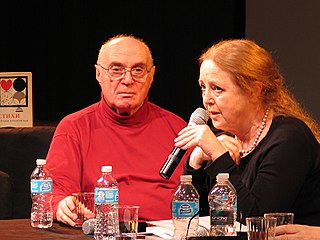
Pavel Mikhailovich Litvinov is a Russian-born U.S. physicist, writer, teacher, human rights activist and former Soviet-era dissident.
Soviet dissidents were people who disagreed with certain features of Soviet ideology or with its entirety and who were willing to speak out against them. The term dissident was used in the Soviet Union (USSR) in the period from the mid-1960s until the Fall of Communism. It was used to refer to small groups of marginalized intellectuals whose challenges, from modest to radical to the Soviet regime, met protection and encouragement from correspondents, and typically criminal prosecution or other forms of silencing by the authorities. Following the etymology of the term, a dissident is considered to "sit apart" from the regime. As dissenters began self-identifying as dissidents, the term came to refer to an individual whose non-conformism was perceived to be for the good of a society. The most influential subset of the dissidents is known as the Soviet human rights movement.

Dina Isaakovna Kaminskaya was a lawyer and human rights activist in the Soviet Union who was forced to emigrate in 1977 to avoid arrest. She and her husband moved to the United States. She was born to Jewish family in Yekaterinoslav.

The Moscow Helsinki Group was one of Russia's leading human rights organisations. It was originally set up in 1976 to monitor Soviet compliance with the Helsinki Accords and to report to the West on Soviet human rights abuses. It had been forced out of existence in the early 1980s, but was revived in 1989 and continued to operate in Russia.
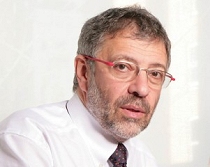
Alexander Davidovich Goldfarb is a Russian-American microbiologist, activist, and author. He emigrated from the USSR in 1975 and studied in Israel and Germany before settling permanently in New York in 1982. Goldfarb is a naturalized American citizen. He has combined a scientific career as a microbiologist with political and public activities focused on civil liberties and human rights in Russia, in the course of which he has been associated with Andrei Sakharov, George Soros, Boris Berezovsky, and Alexander Litvinenko. He has not visited Russia since 2000.

Author and publisher Valery Nikolaevich Chalidze was a Soviet dissident and human rights activist, deprived of his USSR citizenship in 1972 while on a visit to the US.

Leonid Ivanovych Plyushch was a Ukrainian mathematician and Soviet dissident.
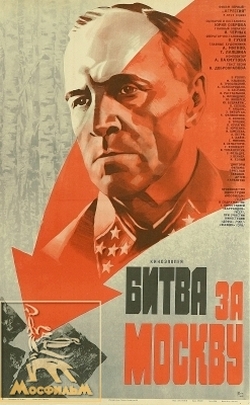
The Battle of Moscow is a 1985 Soviet two-part war film, presenting a dramatized account of the 1941 Battle of Moscow and the events preceding it. The films were a Soviet-East German-Czechoslovak-Vietnamese co-production directed by Yuri Ozerov who also wrote the script. It was made in time for the 40th anniversary of the Allied victory over Nazi Germany and the 20th anniversary of the proclamation of the Victory Day holiday and Moscow's declaration as a Hero City.

Victor Aleksandrovich Krasin was a Russian human rights activist, economist, a former Soviet dissident and a political prisoner. At the time of his death Krasin was a US citizen.

Naum Natanovich Meiman was a Soviet mathematician, and dissident. He is known for his work in complex analysis, partial differential equations, and mathematical physics, as well as for his dissident activity, in particular, for being a member of the Moscow Helsinki Group.
The Initiative or Action Group for the Defense of Human Rights in the USSR was the first civic organization of the Soviet human rights movement. Founded in 1969 by 15 dissidents, the unsanctioned group functioned for over six years as a public platform for Soviet dissidents concerned with violations of human rights in the Soviet Union.
In 1965 a human rights movement emerged in the USSR. Those actively involved did not share a single set of beliefs. Many wanted a variety of civil rights — freedom of expression, of religious belief, of national self-determination. To some it was crucial to provide a truthful record of what was happening in the country, not the heavily censored version provided in official media outlets. Others still were "reform Communists" who thought it possible to change the Soviet system for the better.
Sergei Ivanovich Grigoryants was a Soviet dissident and political prisoner, journalist, literary critic, chairman of the Glasnost Defense Foundation. He was imprisoned for ten years in Chistopol jail as a political prisoner for anti-Soviet activities, from 1975 to 1980 and then four more years starting in 1983 on similar charges.














